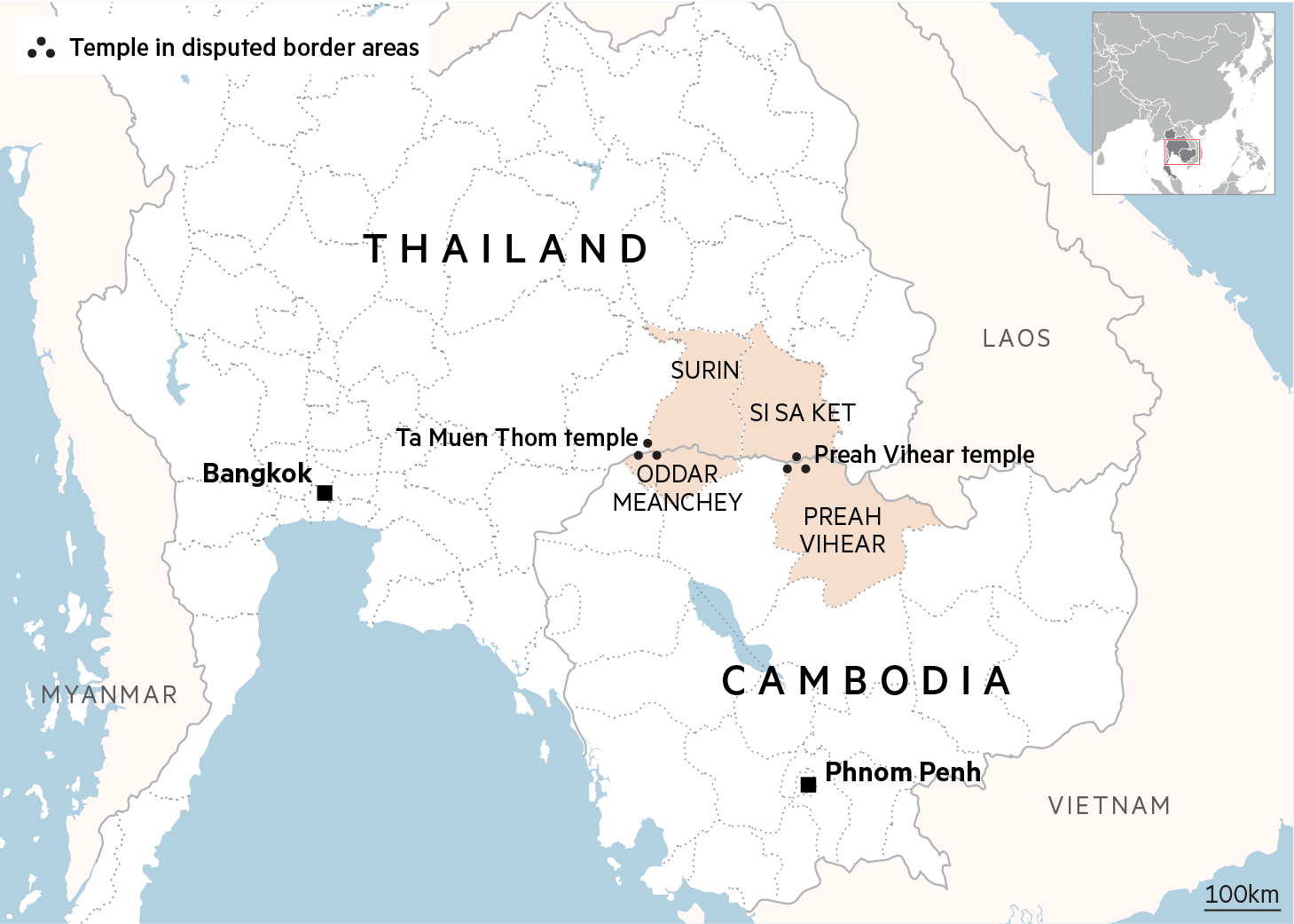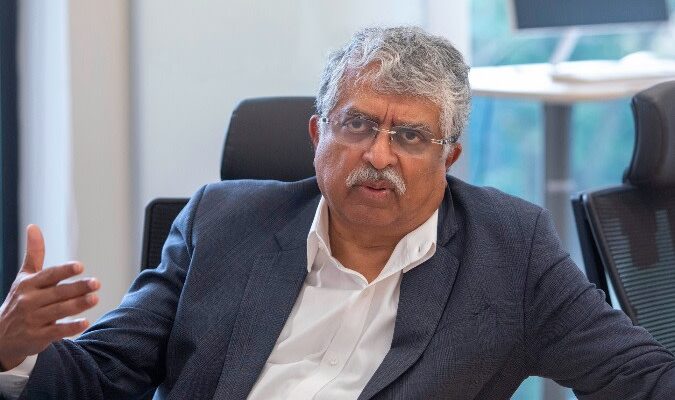Unlock the Editor’s Digest for free
Roula Khalaf, Editor of the FT, selects her favourite stories in this weekly newsletter.
Thailand has used F-16 fighter jets to bomb military targets in Cambodia after accusing its neighbour of launching attacks that it said resulted in at least nine civilian deaths, as a century-long border dispute erupted in violence on Thursday.
The south-east Asian neighbours traded blame for the clashes on Thursday, which reignited a territorial dispute over several temple complexes along the 800km long border.
Tensions had been simmering for weeks, after a brief skirmish in May resulted in the death of one Cambodian soldier and triggered political turmoil in Thailand.
“All Thai F-16s have returned home safely and intact, after a rapid deployment to drop bombs on Cambodian battalions,” Thailand’s second army region said in a Facebook post.
The army said at least nine civilians were killed by Cambodian attacks. Thai authorities had earlier said Cambodia used two BM-21 rocket launchers to hit civilian areas, including a hospital, injuring three civilians and prompting Bangkok to launch F-16 fighter jets.
The Thai foreign ministry called on Cambodia to “take responsibility [and] cease attacks against civilian and military targets”, adding that it was “prepared to intensify our self-defence measures if Cambodia persists in its armed attack and violations upon Thailand’s sovereignty”. It also closed its border with Cambodia.
Cambodia’s Prime Minister Hun Manet, meanwhile, said Thai soldiers had initiated the fighting. “In this situation, we have no choice but to respond with military force against the armed aggression,” he said in a statement.
China’s foreign ministry called the countries, which it referred to as “friendly neighbours”, to “resolve the issue through dialogue”, adding: “maintaining good-neighbourly relations and properly handling differences serve the fundamental and long-term interests of both sides”.
The ministry said that Beijing, which wields considerable influence with both governments, “has been and will continue to promote peace and facilitate talks in its own way, playing a constructive role in easing tensions”.
The conflict has escalated since May, when both sides threatened to cut off trade and electricity flows. The countries recalled their respective ambassadors on Wednesday after Thailand blamed Cambodia for laying landmines that it said had injured five Thai soldiers, the second such incident in a week. Cambodia denied that the landmines were newly laid, pointing to unexploded ordinance from its civil war.
Border violence between Thailand and Cambodia has broken out sporadically in the past. The most recent clashes in 2011, which occurred near the 11th-century Preah Vihear temple, resulted in more than 20 deaths.
Cambodia claims the temple and surrounding area based on a 1907 map created during French colonial rule, but Thailand has also laid claim to the territory. In 1962, the International Court of Justice awarded jurisdiction of the temple to Cambodia, though Thailand has continued to maintain a military presence in the area.

Four other temple complexes are also under dispute. In June, Cambodia asked the ICJ to resolve those issues.
The fighting on Thursday, the worst in recent years, occurred near a different temple, Prasat Ta Muen Thom, and was the “culmination of escalating bilateral tensions”, said Thitinan Pongsudhirak, a professor of political science at Chulalongkorn University in Bangkok.
He added that leaders of both countries were facing “nationalist pressures” at home over the border dispute. Relations between the countries’ ruling families have also soured. “The Shinawatra and Hun families are in dispute,” Thitinan said.
In June, Thai Prime Minister Paetongtarn Shinawatra called Hun Sen, Cambodia’s influential former leader and the father of Hun Manet, in an attempt to smooth the relationship.
But the effort backfired after Hun Sen leaked a recording of the call, in which Paetongtarn referred to the former Cambodian leader deferentially as “uncle” and appeared to blame Thailand’s military for aggravating the crisis.
Critics accused Paetongtarn — whose father Thaksin Shinawatra was formerly Thailand’s premier, and had close ties to Hun Sen — of taking a conciliatory tone that undermined Thailand’s military and national interests.
She was forced to apologise, and was later suspended by the Thai constitutional court. The court is currently deliberating whether to remove her from office for ethical violations, although her party remains part of the ruling coalition.
Additional reporting by Nian Liu in Beijing


